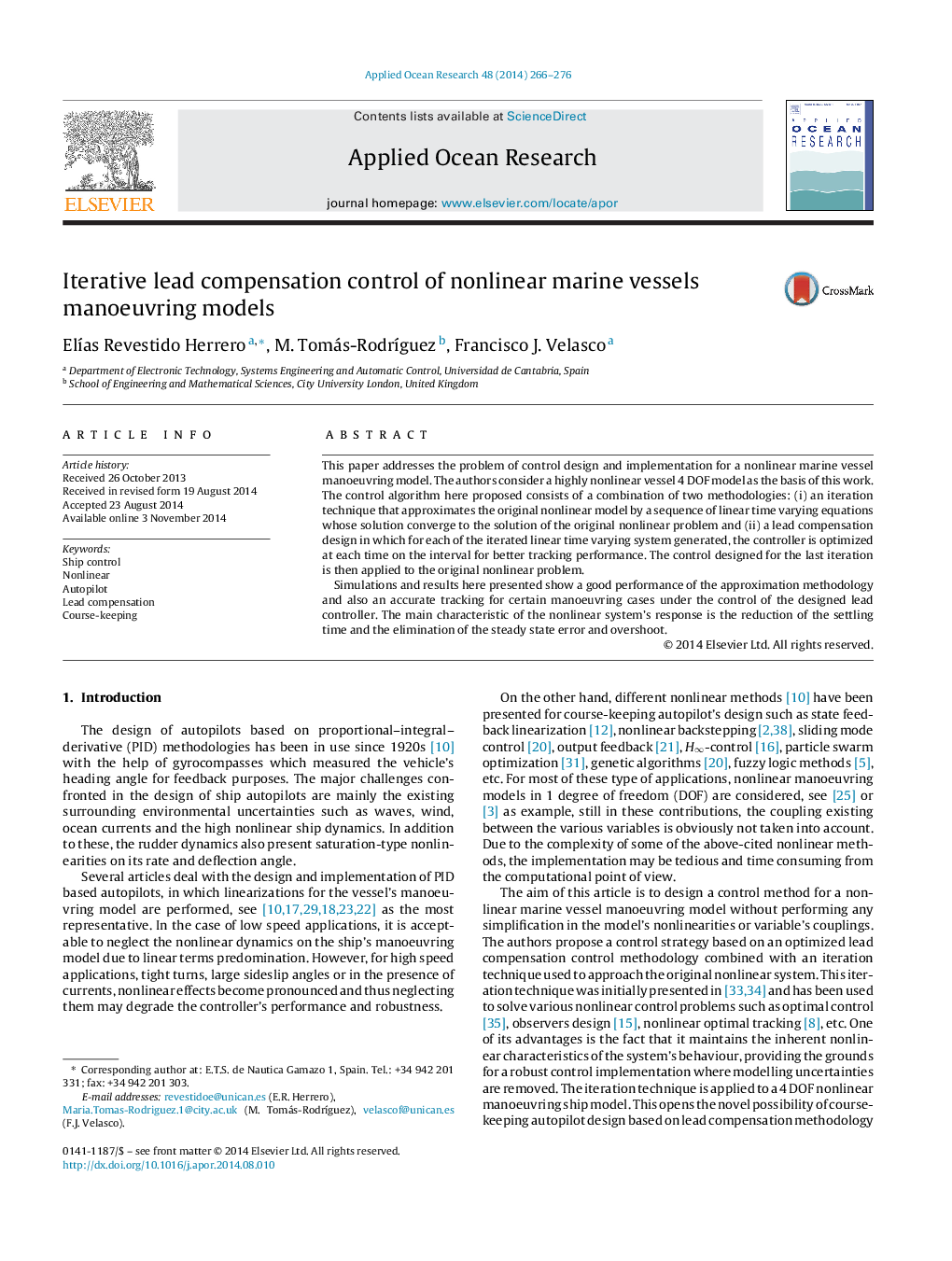| Article ID | Journal | Published Year | Pages | File Type |
|---|---|---|---|---|
| 1720006 | Applied Ocean Research | 2014 | 11 Pages |
•We apply an iteration technique that accurately approximates a nonlinear manoeuvring model.•We propose a novel course-keeping autopilot based on the iteration technique.•The designed control consists of: LTV approximations and, an optimized lead compensation design.•Elimination of the overshoot, reduction of settling time and steady state error are achieved.•The nonlinear model here considered is a full scale coastal patrol vessel data.
This paper addresses the problem of control design and implementation for a nonlinear marine vessel manoeuvring model. The authors consider a highly nonlinear vessel 4 DOF model as the basis of this work. The control algorithm here proposed consists of a combination of two methodologies: (i) an iteration technique that approximates the original nonlinear model by a sequence of linear time varying equations whose solution converge to the solution of the original nonlinear problem and (ii) a lead compensation design in which for each of the iterated linear time varying system generated, the controller is optimized at each time on the interval for better tracking performance. The control designed for the last iteration is then applied to the original nonlinear problem.Simulations and results here presented show a good performance of the approximation methodology and also an accurate tracking for certain manoeuvring cases under the control of the designed lead controller. The main characteristic of the nonlinear system's response is the reduction of the settling time and the elimination of the steady state error and overshoot.
